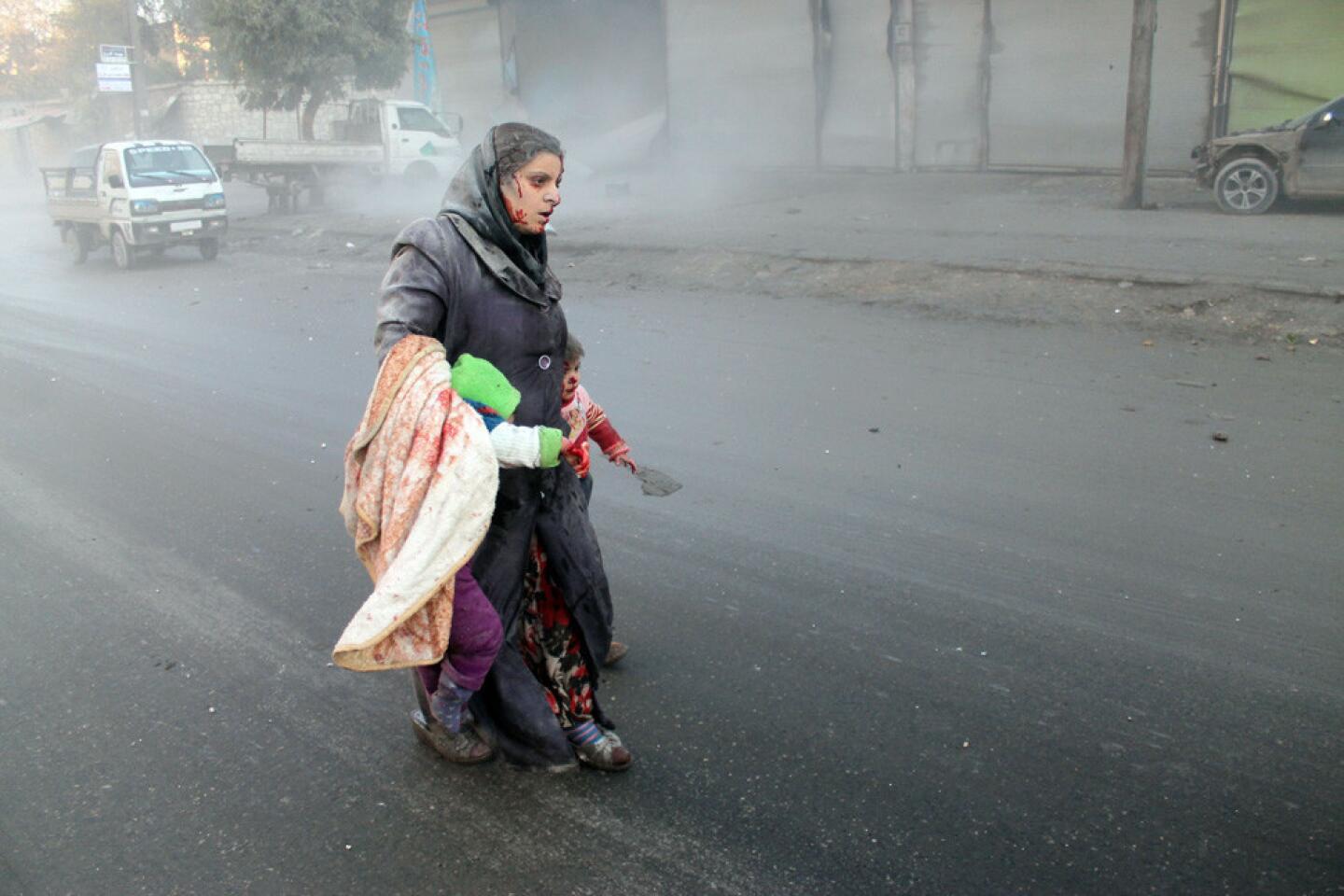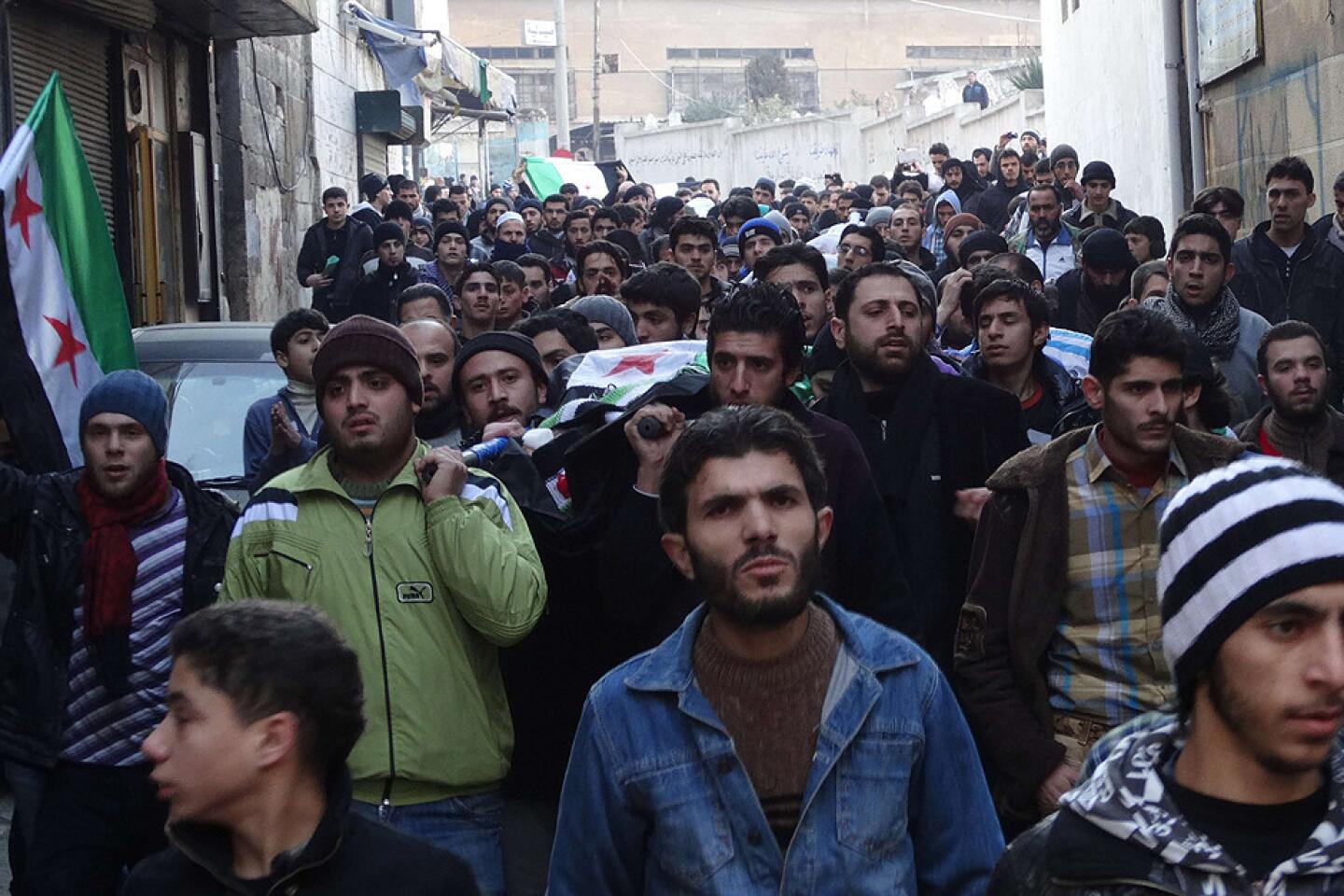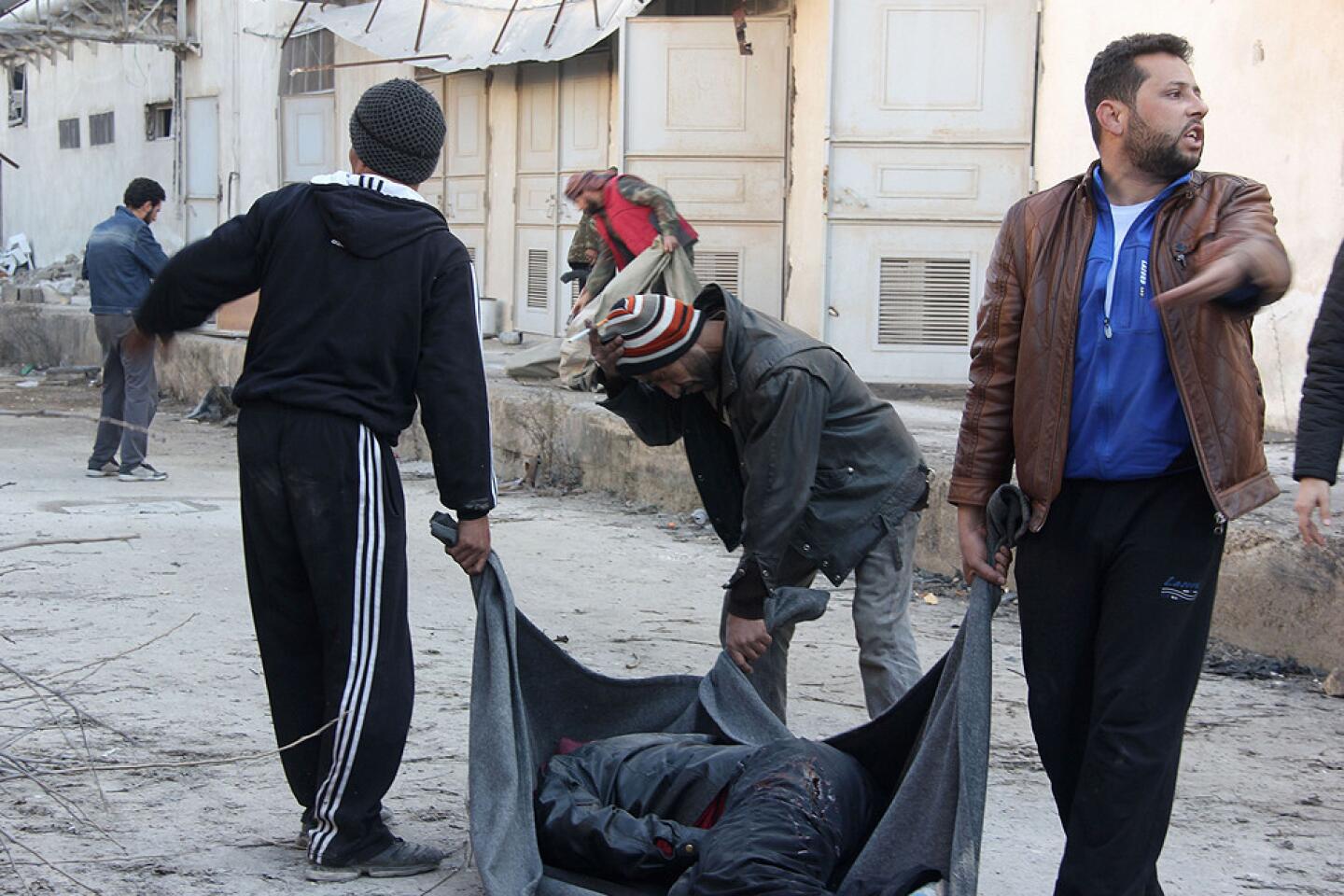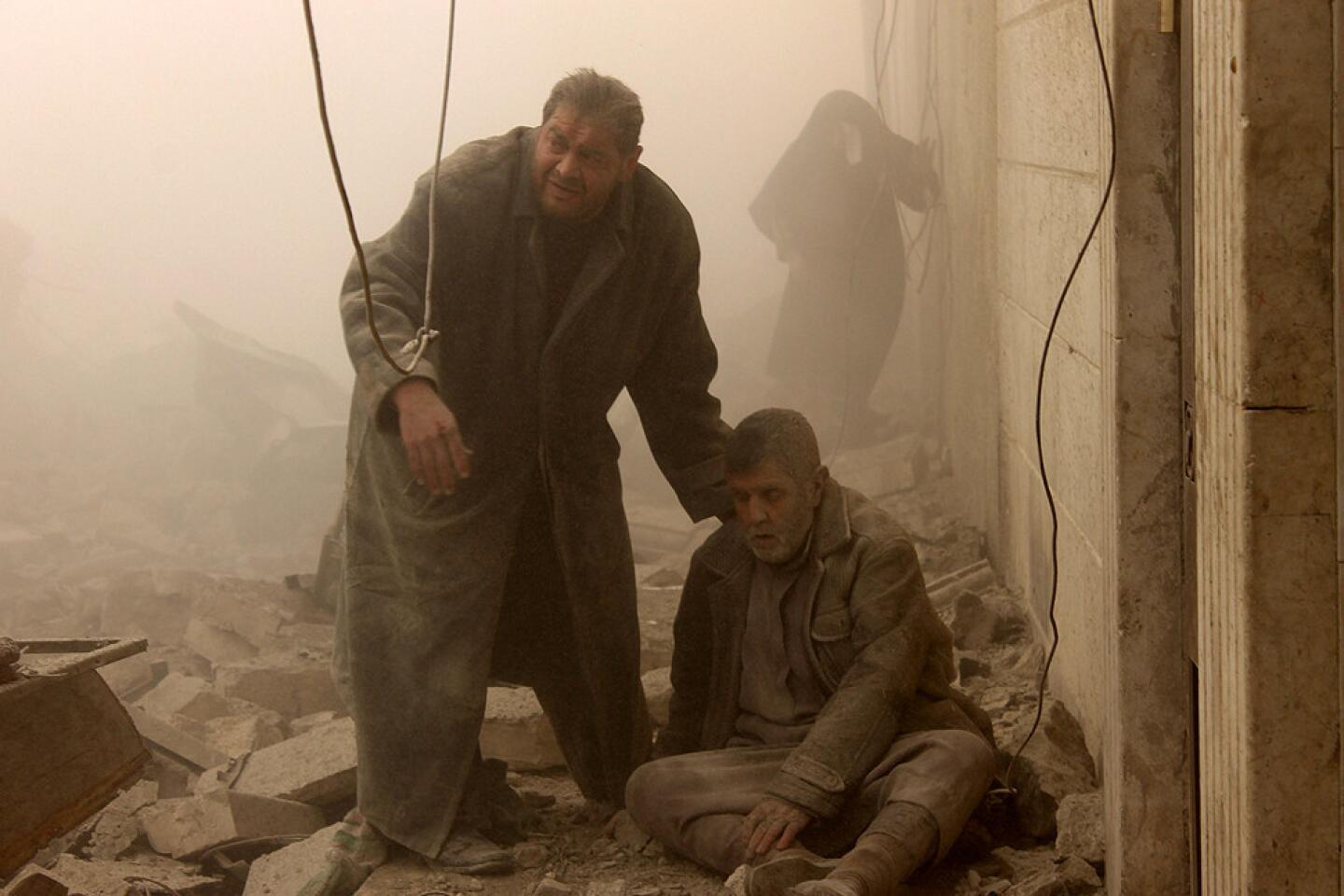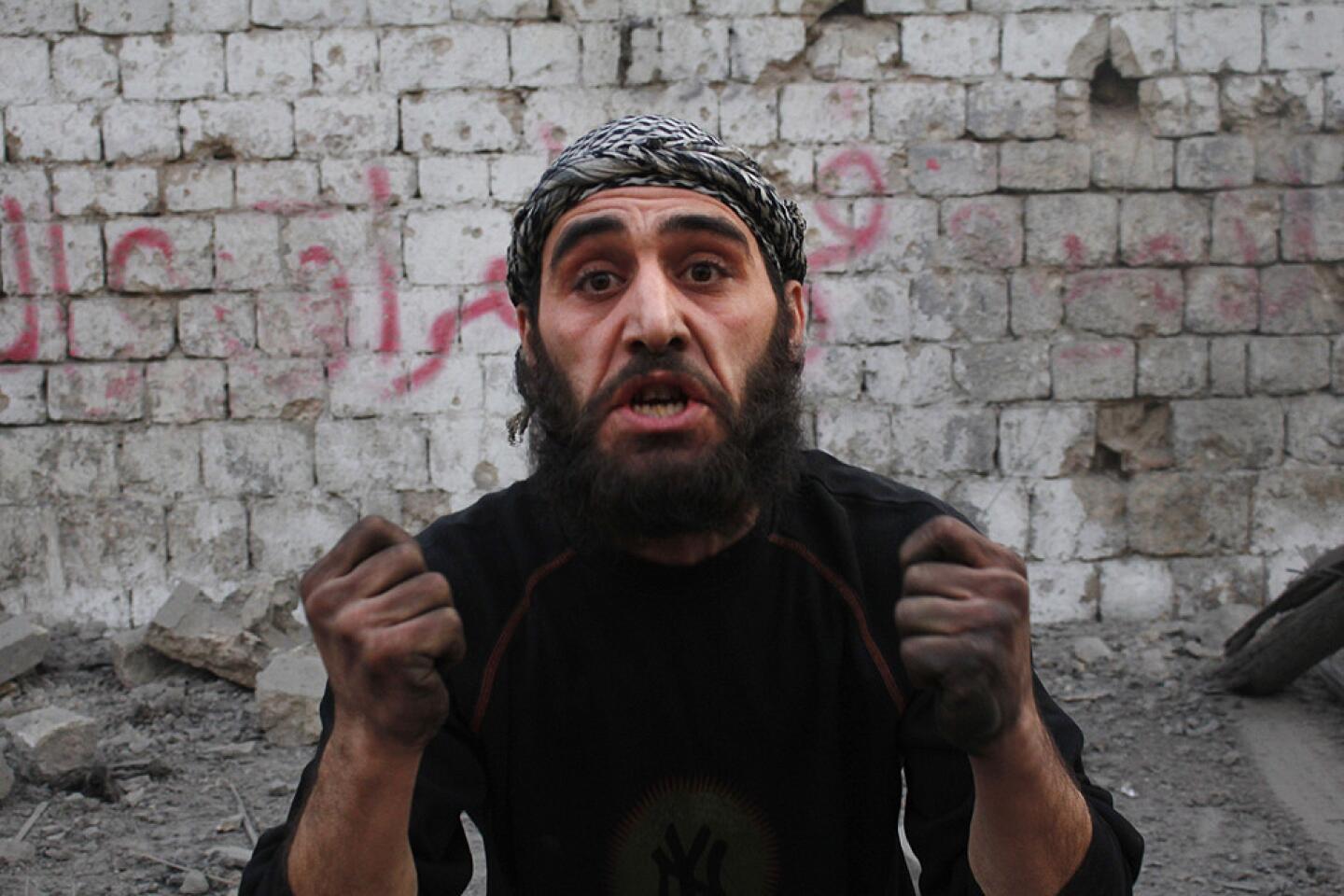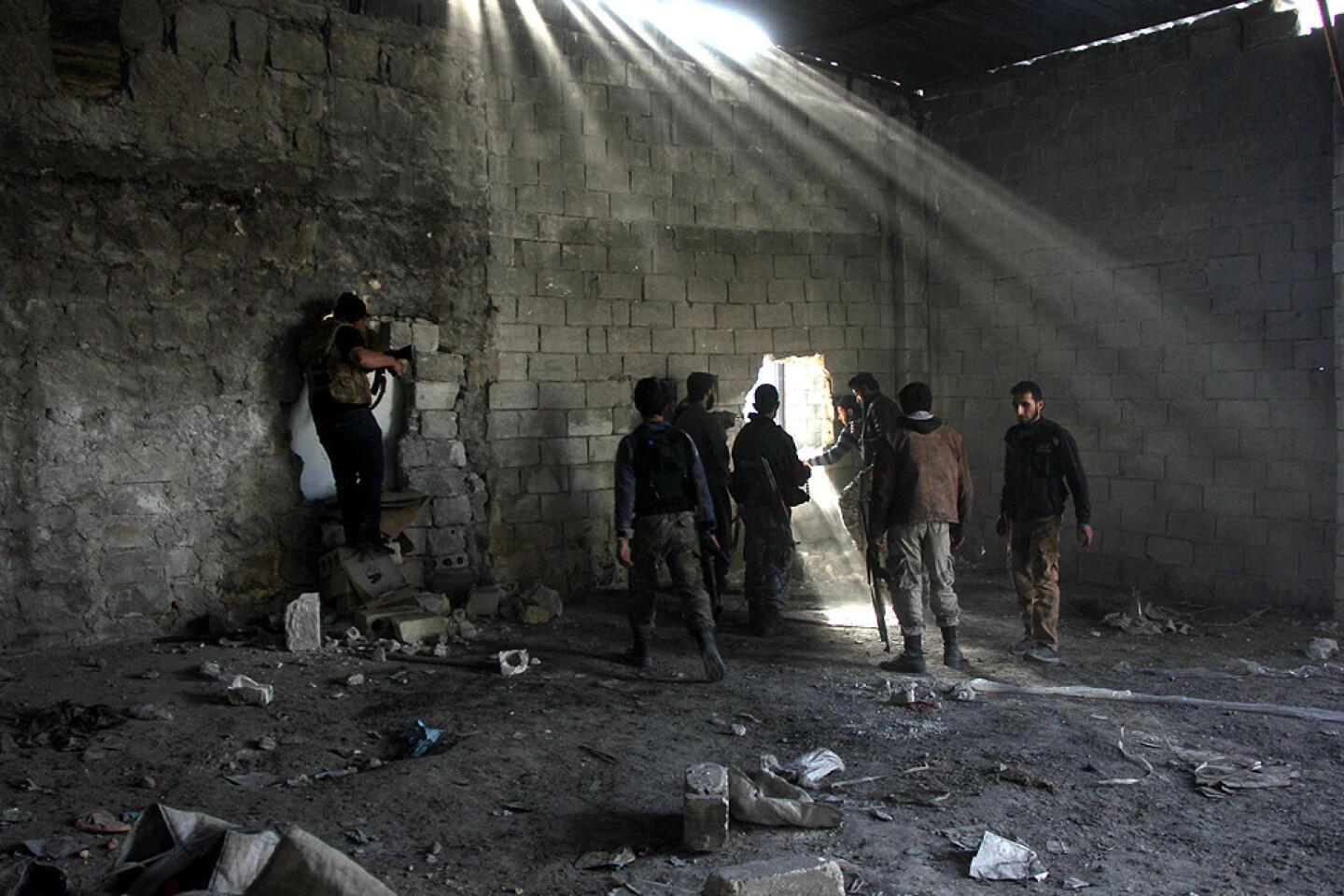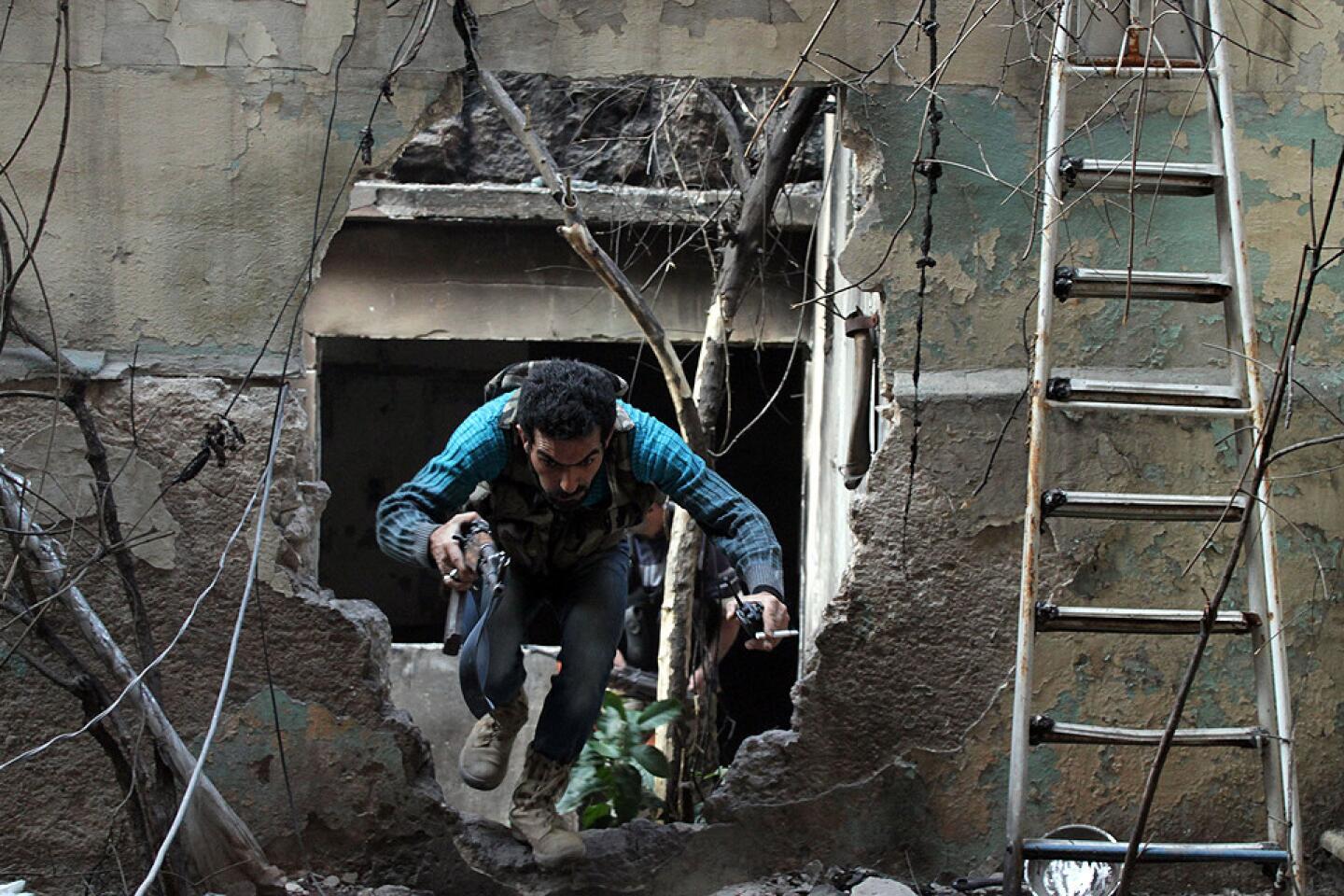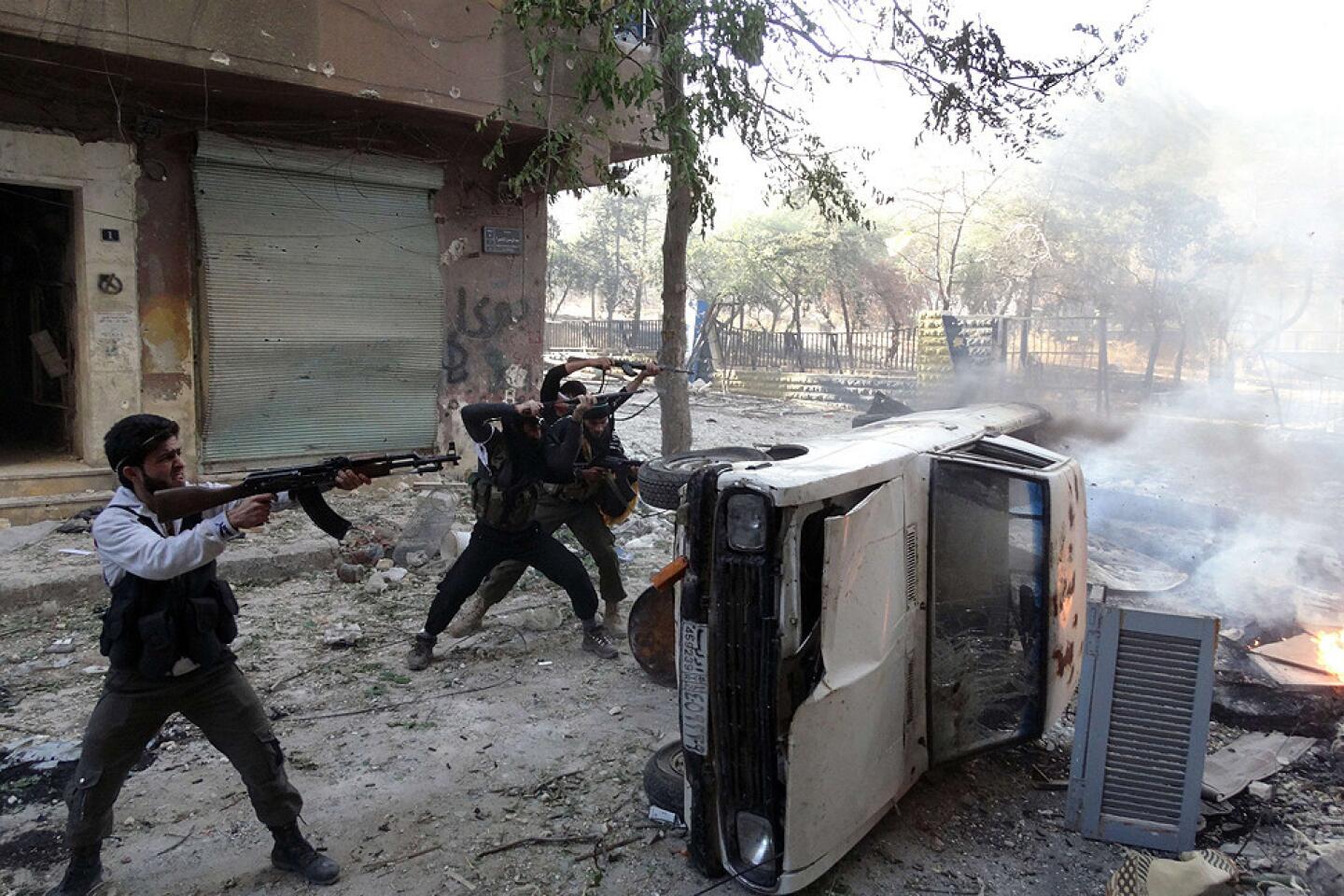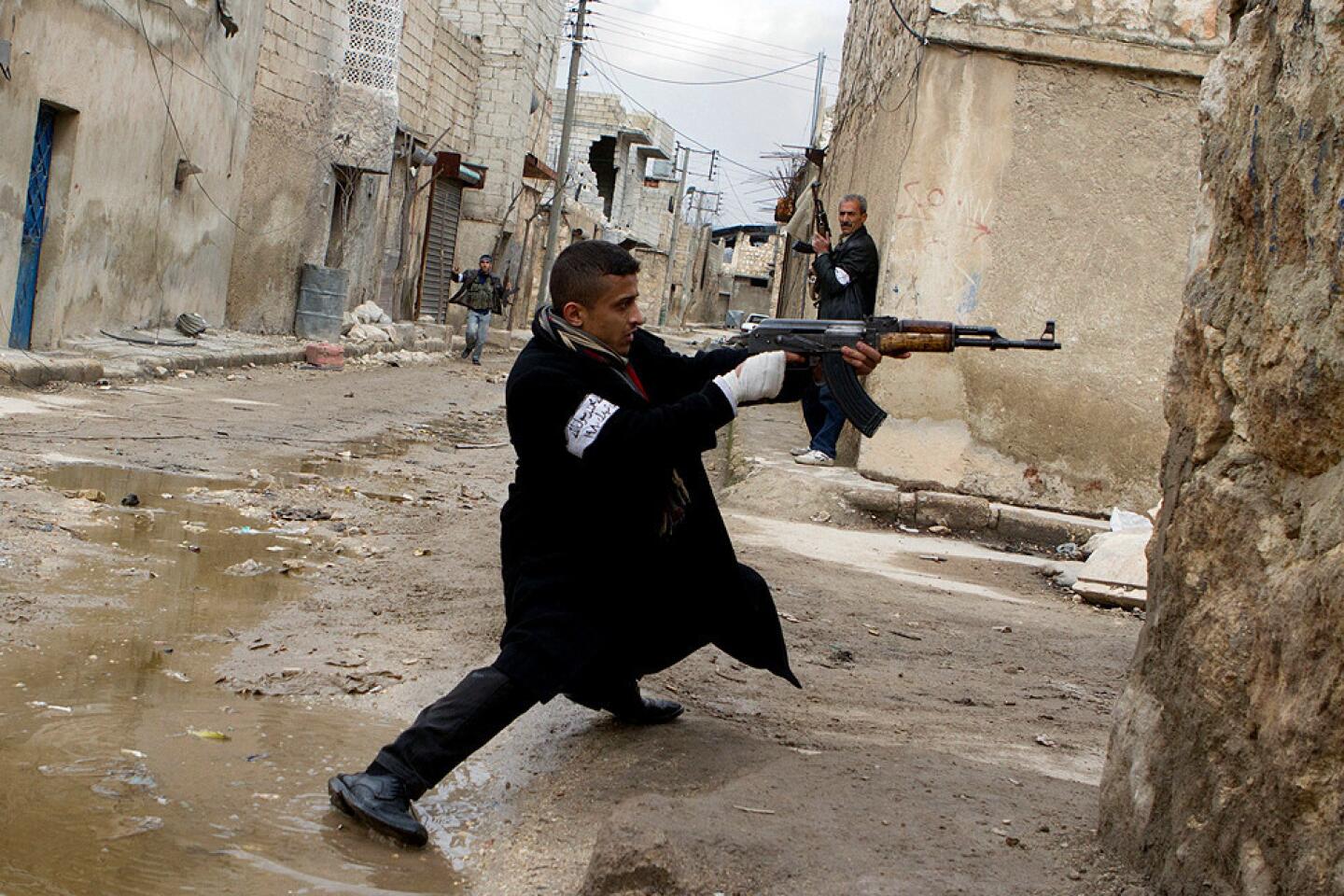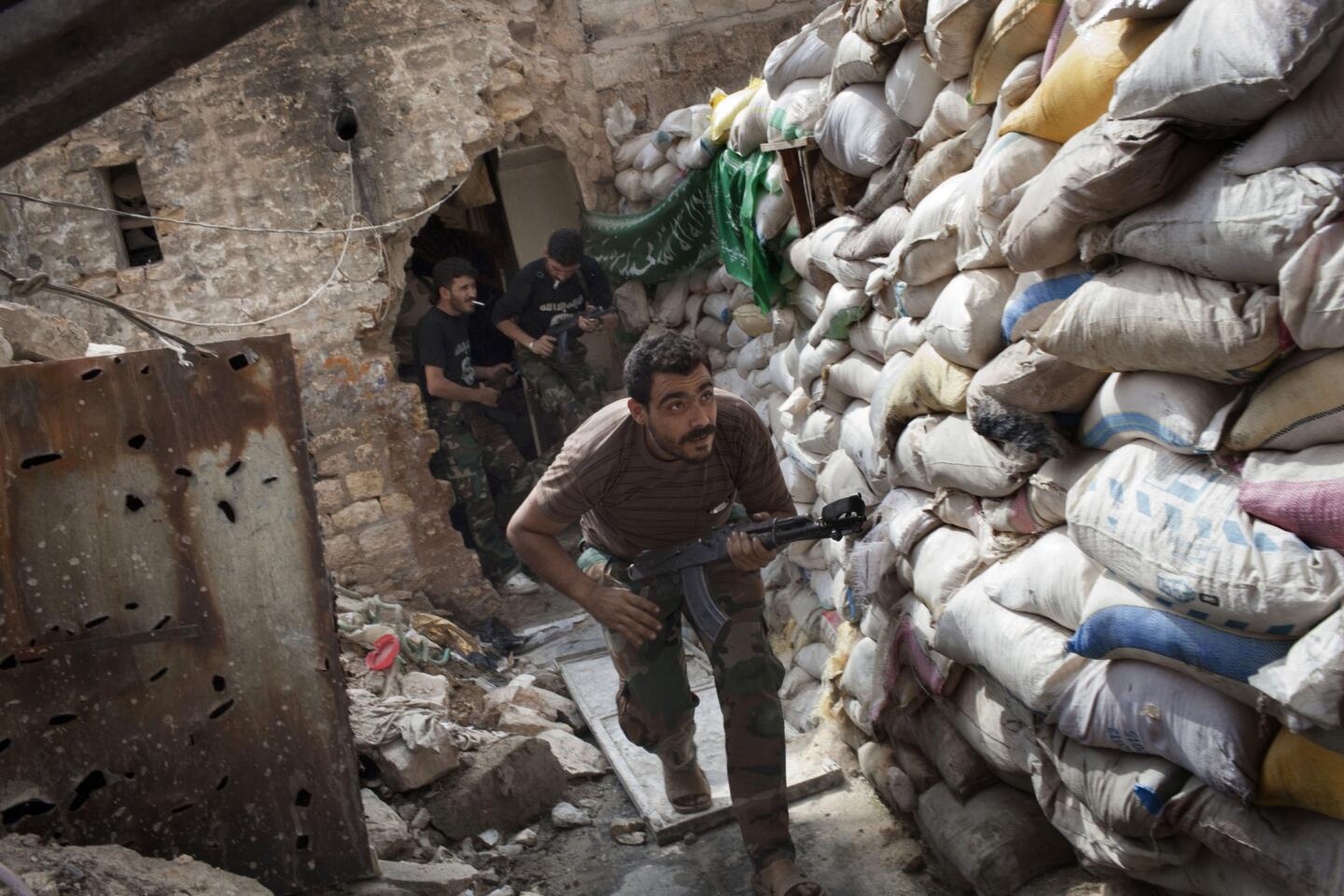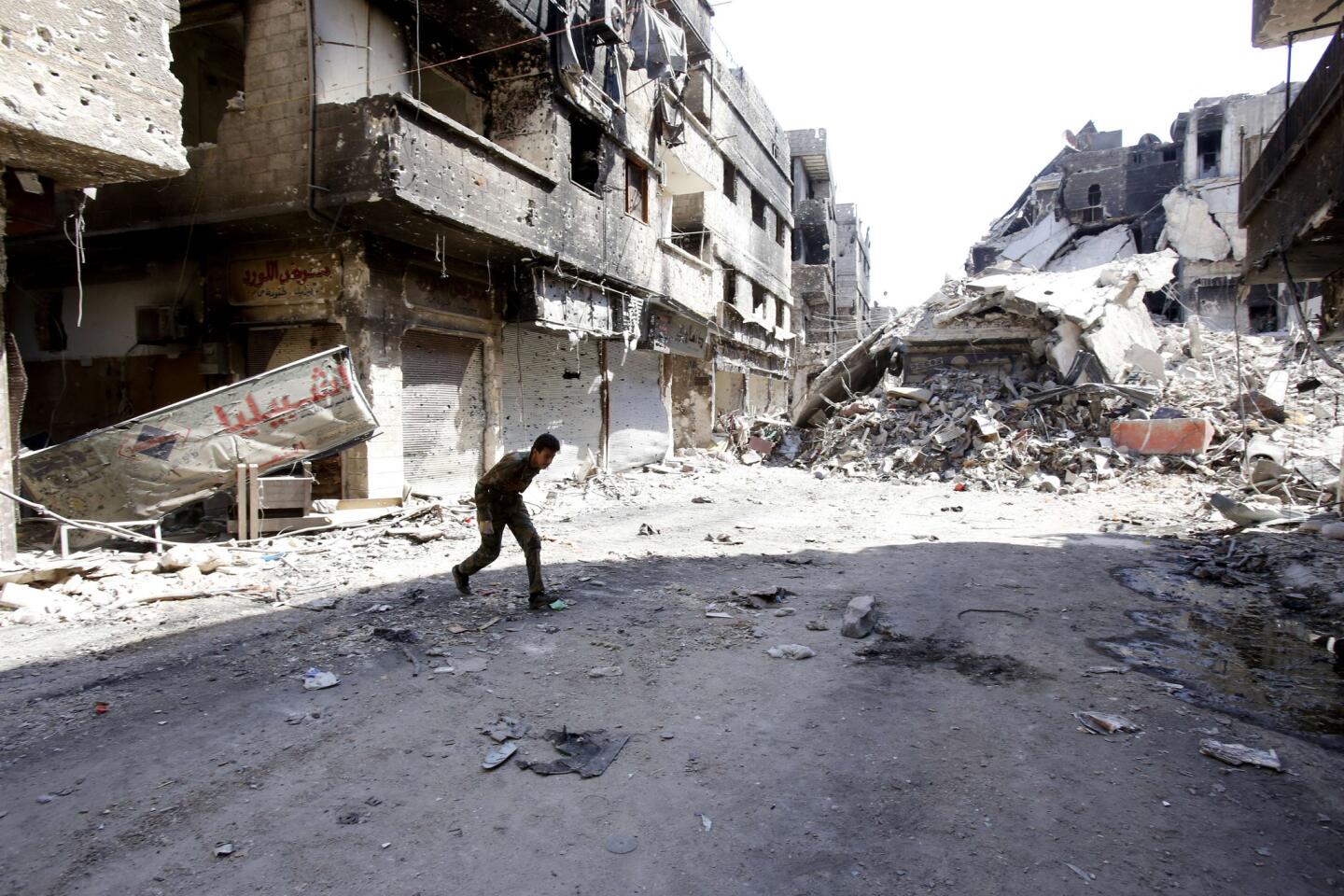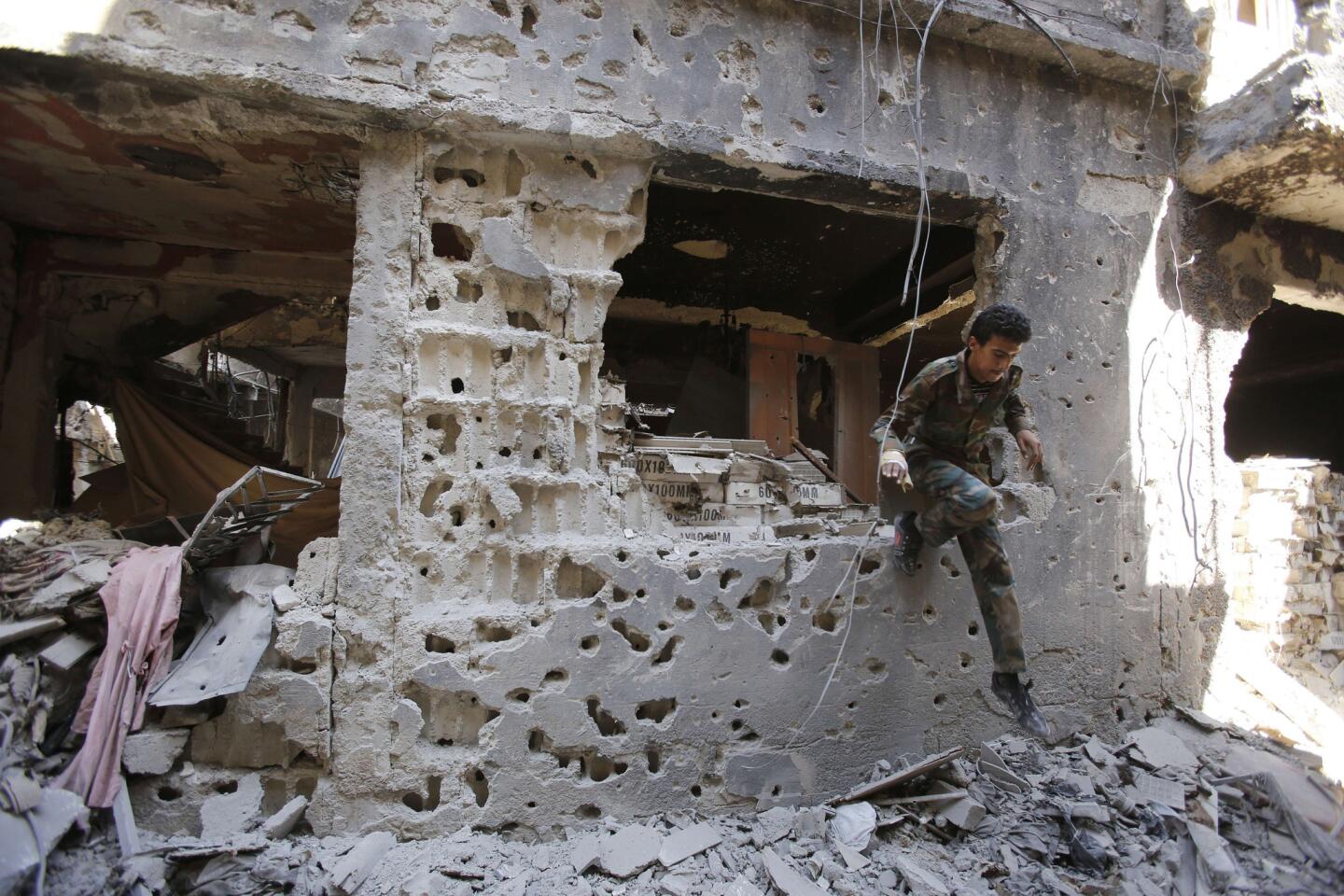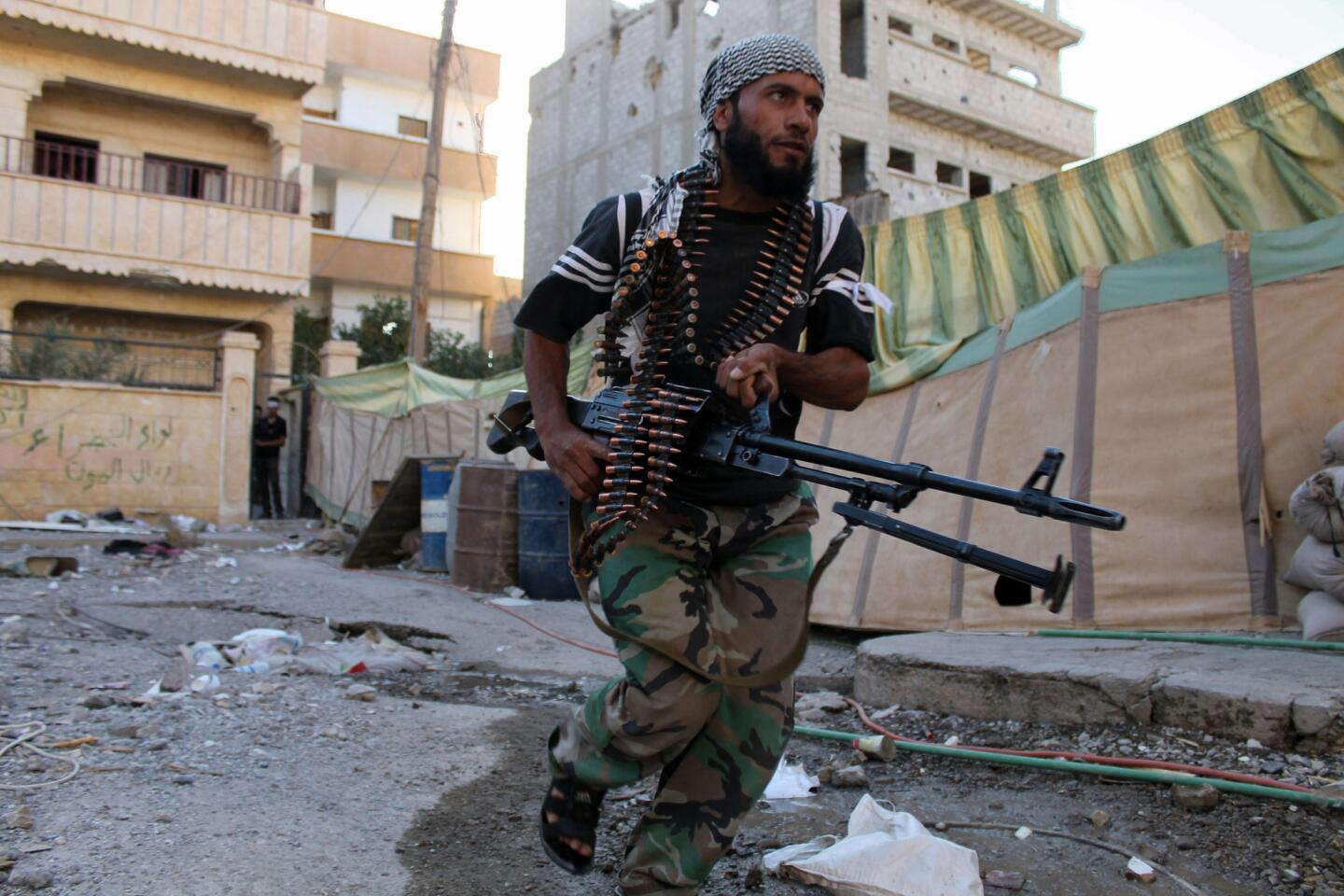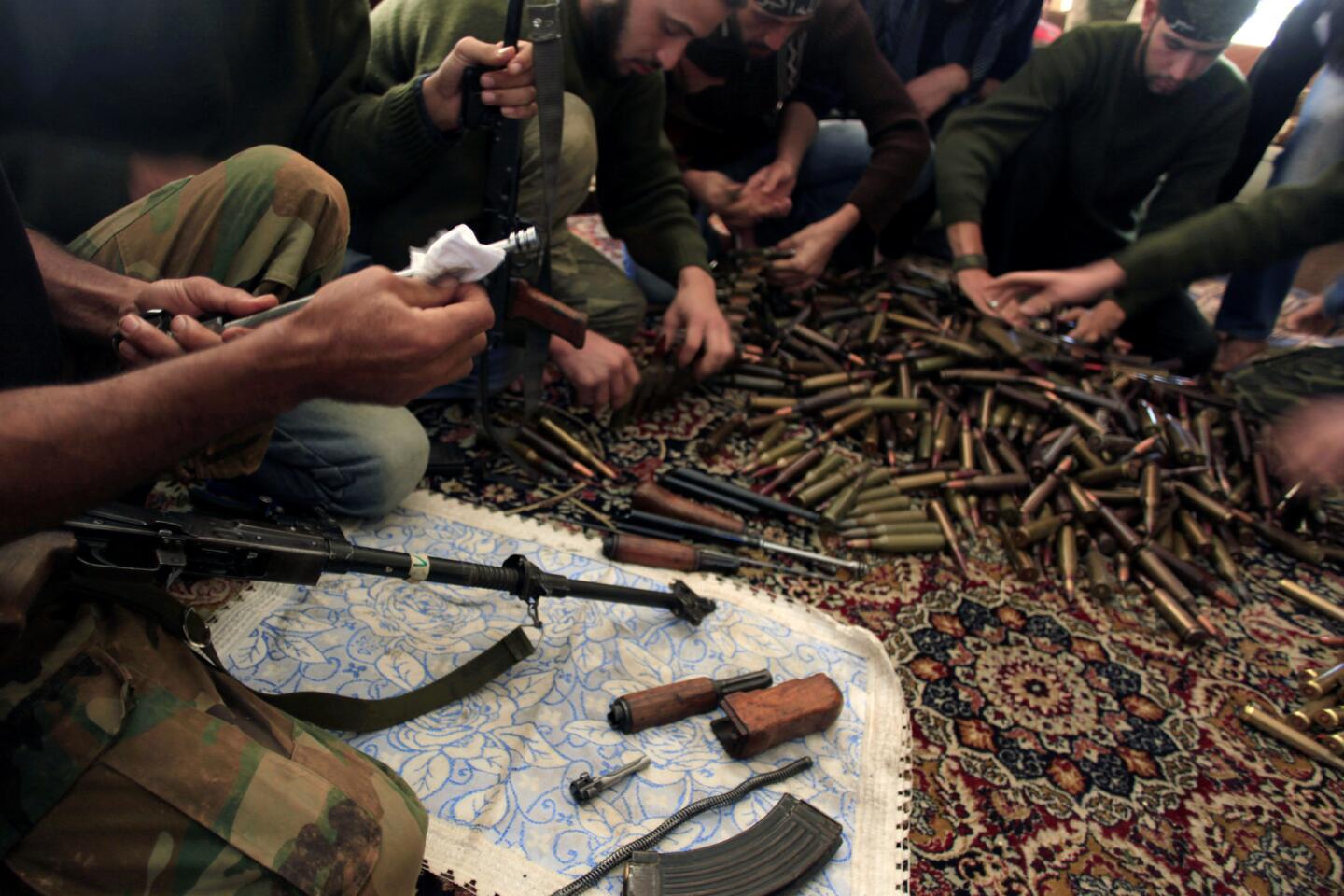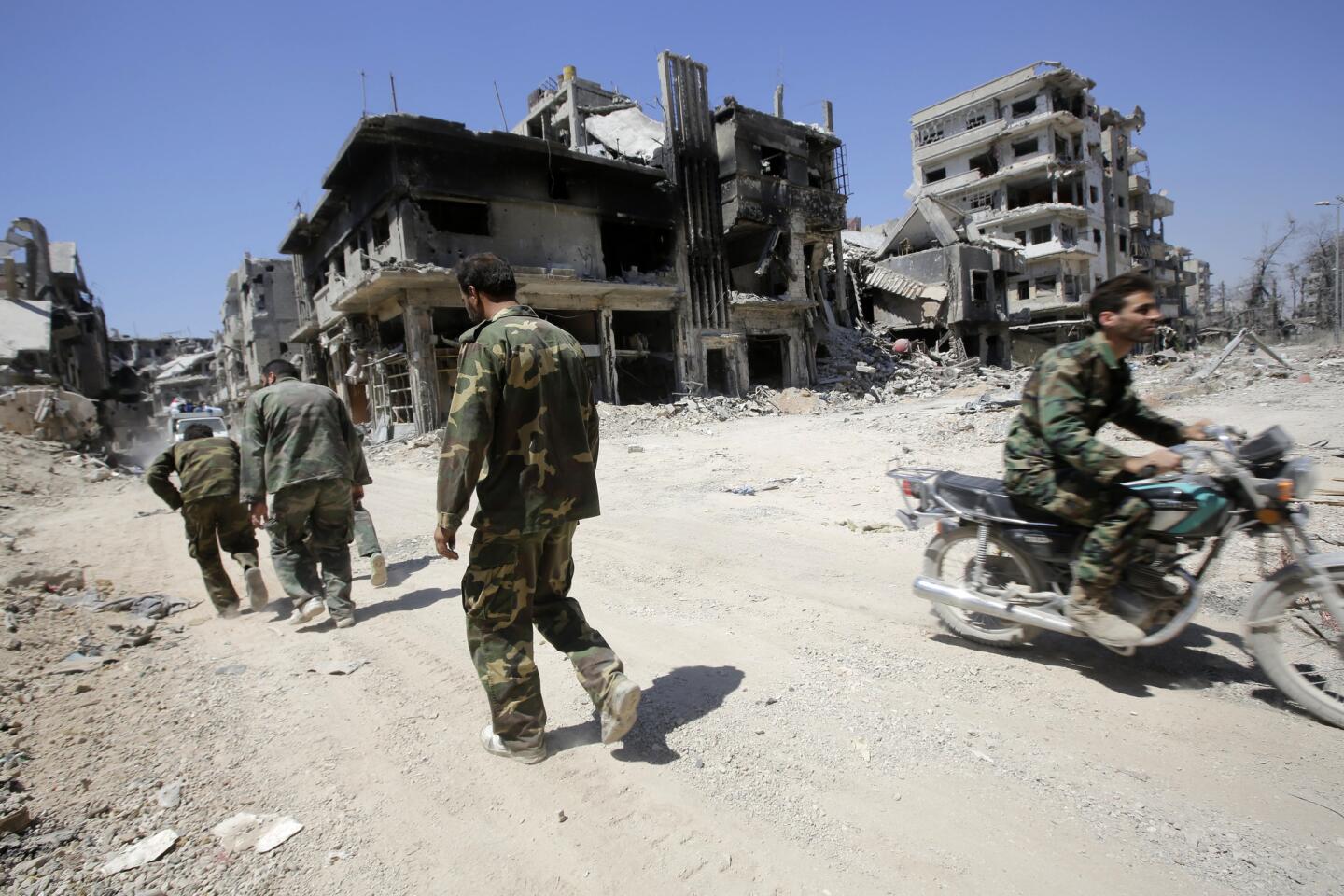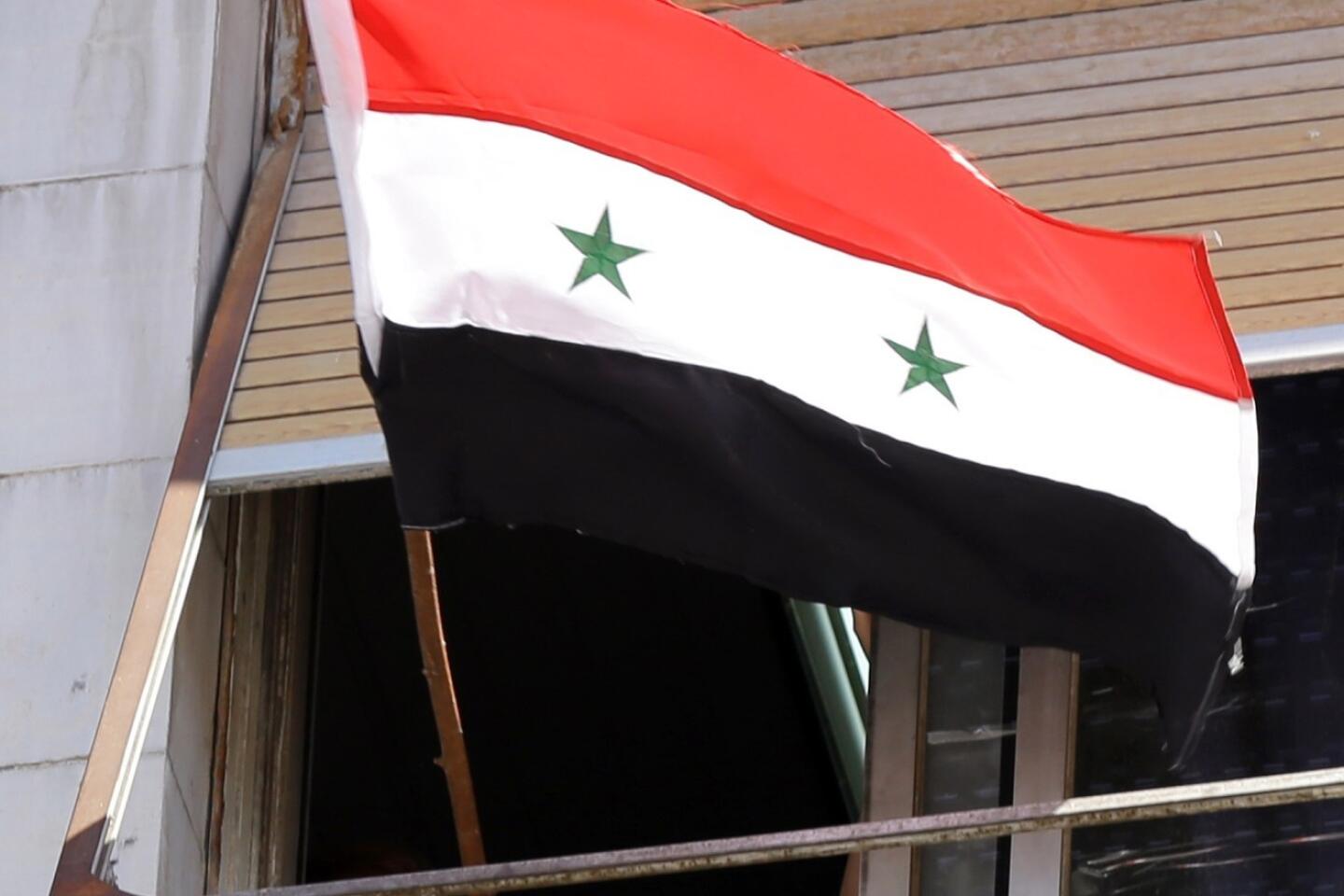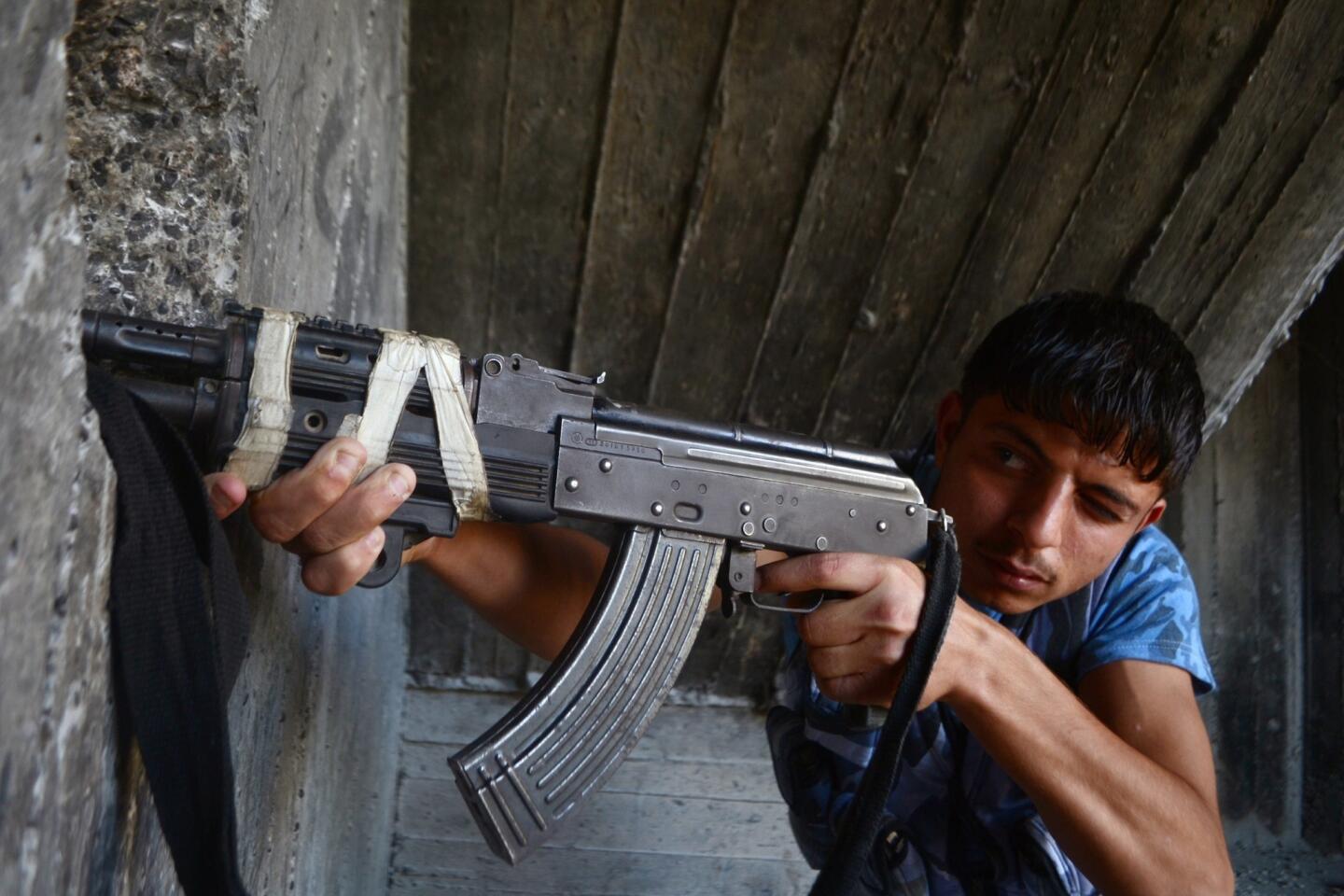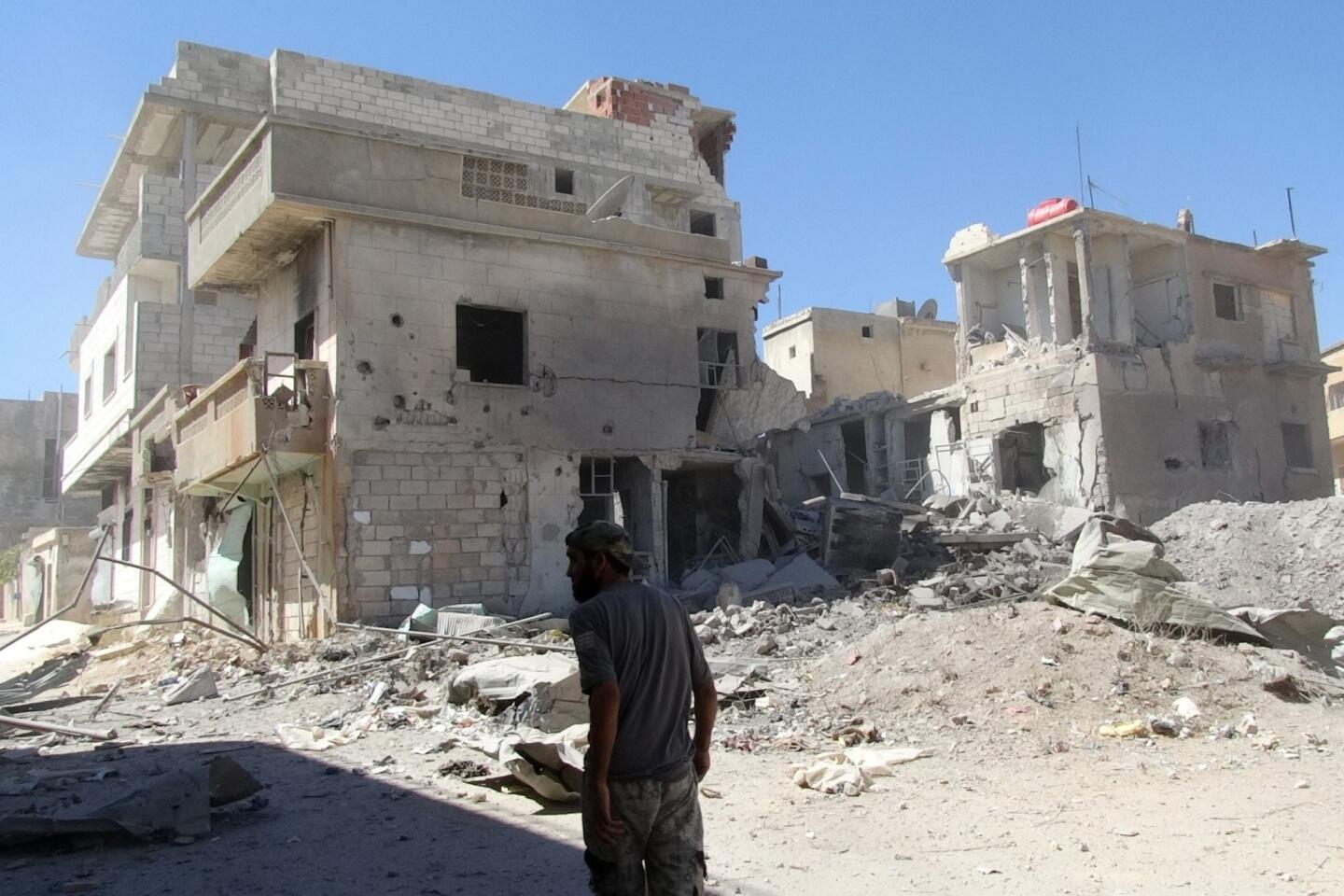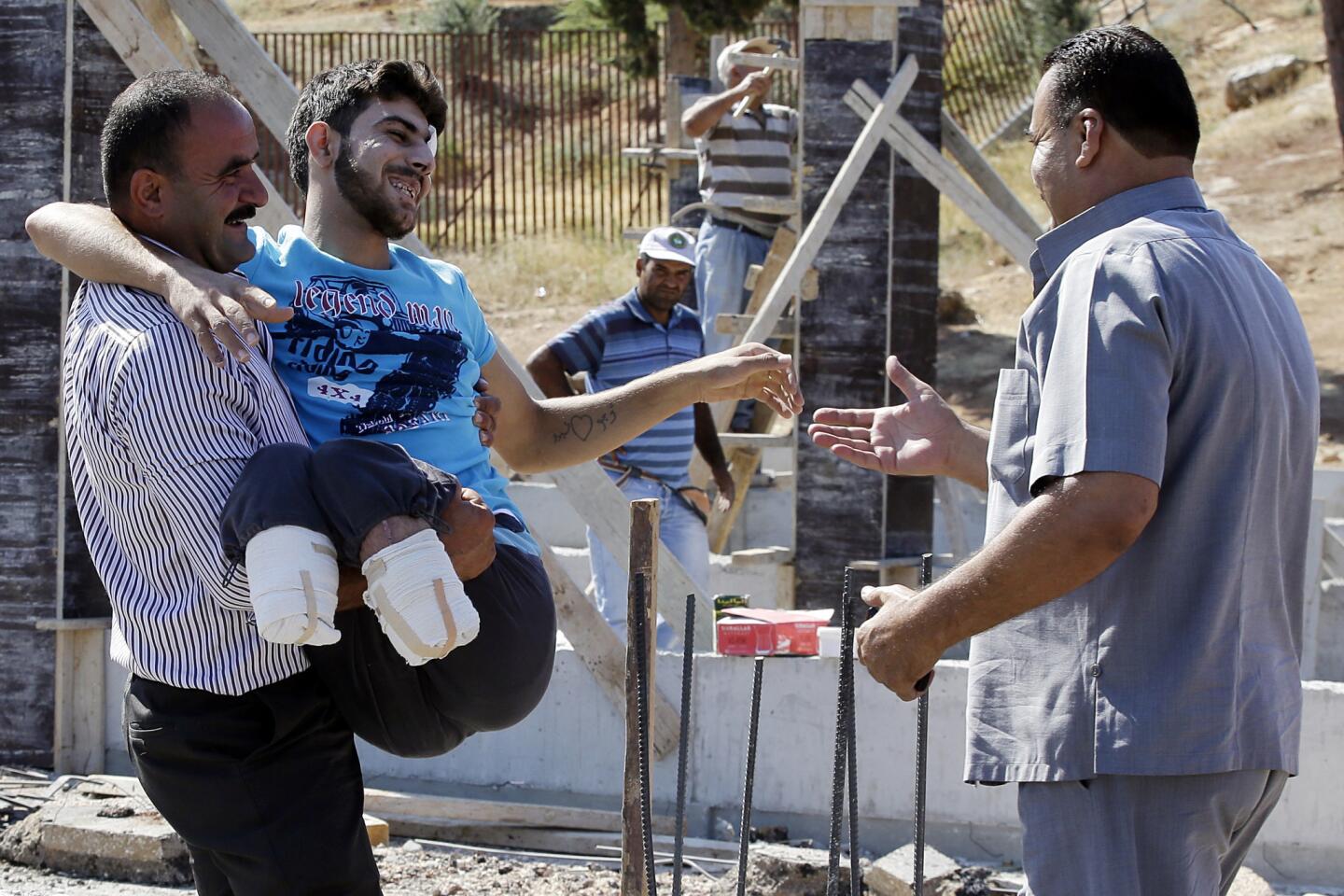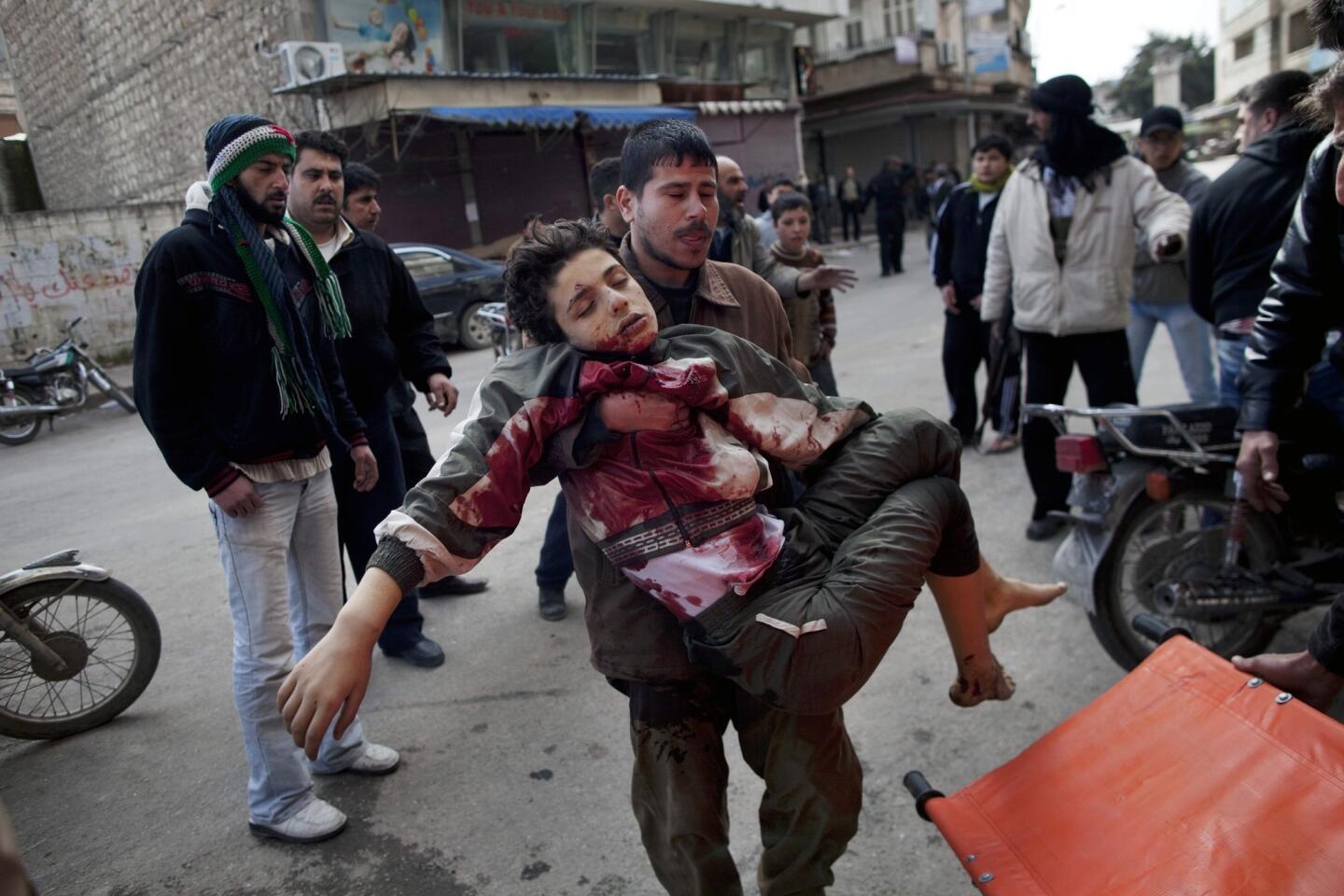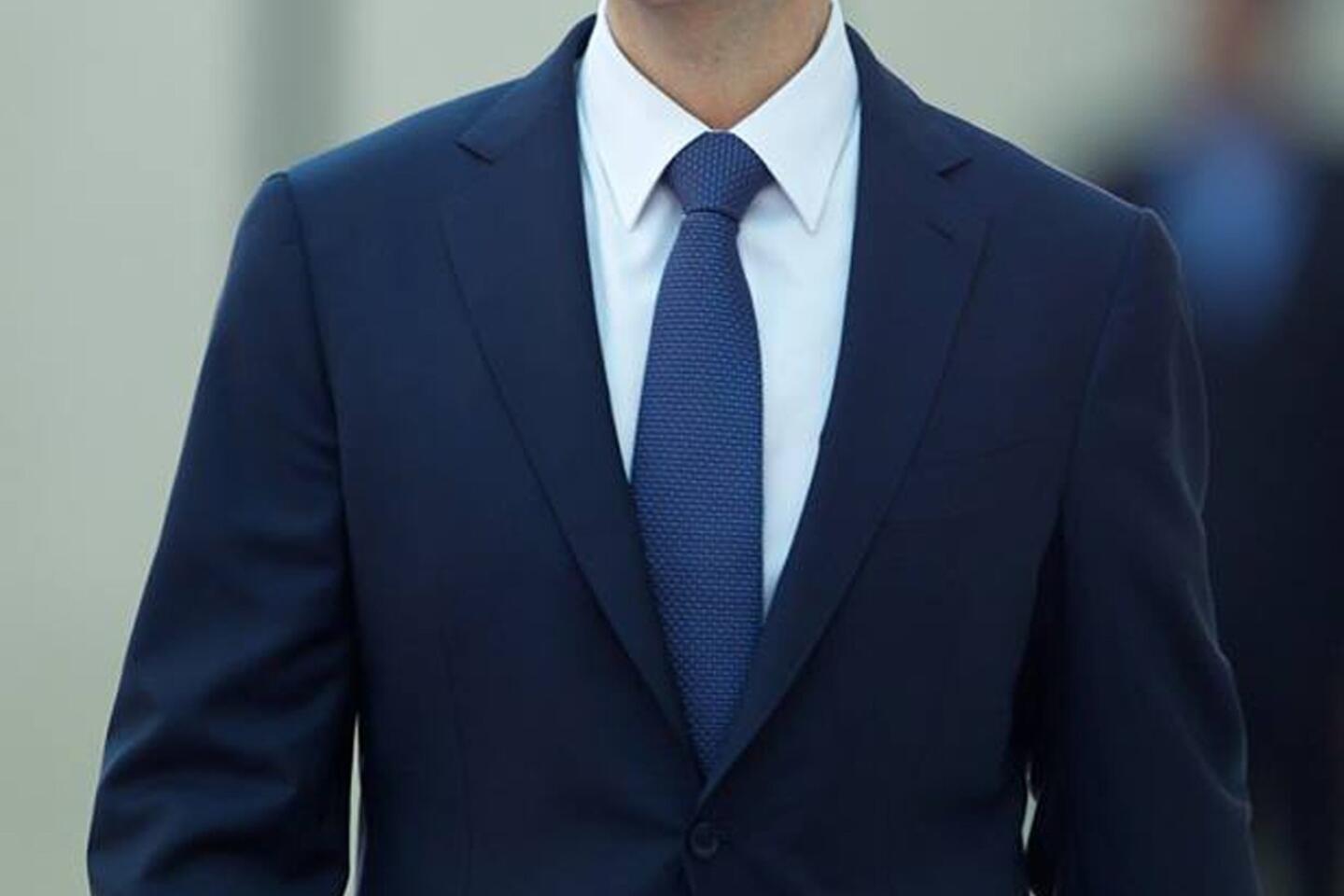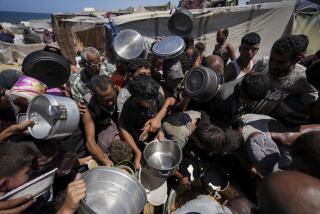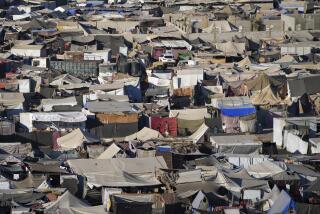Syrian negotiators focus on humanitarian aid for civilians
GENEVA — Humanitarian aid for civilians trapped in Syria’s civil war topped the agenda Saturday as representatives of President Bashar Assad’s government and members of a U.S.-backed opposition bloc held their first face-to-face meetings.
The long-awaited discussions in Switzerland seemed to indicate that a nascent United Nations-backed peace process was finally closer to the crucial phase of negotiations on how to end the nearly three-year war.
During two separate closed-door meetings, the warring sides faced each other in the same room but directed all questions through the U.N. mediator, Lakhdar Brahimi. The delicate choreography illustrated the fragility of a process that has taken more than eight months to initiate.
“We haven’t achieved much but we are continuing,” Brahimi told reporters afterward. “I think it is a good beginning.”
The initial encounters appeared to be less about substance and more about building some level of confidence among opposing sides steeped in mutual antagonism.
“We have started to discuss humanitarian issues as an opening so that the people get used to talking to each other,” said Brahimi, the veteran Algerian diplomat. “The situation is very difficult and very, very, very complicated. We are walking not one step at a time but half a step.”
The U.N. mediator said he hoped the talks between the rival camps could help expedite the delivery of humanitarian aid to civilians trapped in the Old City of Homs, a longtime rebel bastion that has been under government siege for months. In Homs, as in other besieged areas of Syria, each side has accused the other of barring entry of relief supplies and not allowing trapped civilians to leave. But Syrian officials are considering permitting an aid convoy to enter Homs’ Old City in coming days, Brahimi said.
A spokesman for the U.S.-backed Syrian National Coalition, the opposition bloc, later described the Homs discussion as a “trial balloon” before the commencement of broader peace talks. Homs’ Old City, much of which has been reduced to rubble by shelling and gun battles, has been inaccessible for months; most of its residents fled long ago, but some remain.
“If the regime does not open humanitarian corridors for people who are starving to death, this means that the regime wants a military solution and not a political solution,” Louay Safi, the coalition spokesman, told reporters.
Both sides went to Geneva saying they back a political settlement to the war, which has left tens of thousands dead and radiated instability throughout the region.
The opposition alleges that the Syrian government has used starvation as a weapon of war. Syrian authorities deny the charge and have accused rebels of using civilians as “human shields” to fend off bombardment.
More than 250,000 Syrians live in blockaded areas lacking regular supplies of food, medicine and other necessities, according to the U.N. Both sides in the conflict are engaged in encircling and cutting off communities deemed hostile, the U.N. says. Humanitarian officials are hopeful that a broader deal may emerge from the Geneva talks to facilitate regular deliveries of needed goods to besieged areas.
“If we succeed with the issue of Homs, we hope that this will be the start of talking on other things,” said Brahimi, who previously helped mediate peace talks to end conflicts in Lebanon and Afghanistan.
The two sides are scheduled to meet again Sunday, when a release of prisoners by both sides will be on the agenda, Brahimi said. The government is alleged to be holding thousands of political prisoners, while Islamic rebels are believed to have hundreds in custody, including a number of journalists, a dozen abducted Christian nuns, two Christian bishops and an Italian Jesuit priest.
According to the opposition spokesman, the talks Saturday and Sunday are a “prelude” to actual negotiations scheduled to begin Monday. That is when the most explosive issue — the formation of a transitional government in Syria — is slated to be discussed, the spokesman said.
The opposition bloc and rebel commanders in Syria insist that Assad must cede power as part of any transitional government. Syrian authorities say Assad’s tenure is not negotiable. There has been no sign yet of an easing of that fundamental disagreement.
Plans to hold face-to-face talks Friday were scrapped amid deep disagreements between the rival camps. Both sides have been exchanging rancorous allegations in public pronouncements since the so-called Geneva II peace conference opened Wednesday.
U.N. officials and others have cautioned that any major breakthrough is unlikely during the talks.
Opposition forces backed by Washington and its allies are fighting to oust Assad, whose major foreign backers are Russia and Iran.
The rival negotiating teams in Geneva met once Saturday morning and then again in the afternoon, U.N. officials said.
The Geneva talks have been strongly backed by the United States and Russia. The two nations first called for the discussions months ago. But major disagreements between the two sides and the fractious nature of the Syrian opposition contributed to the long delay in organizing the conference.
More to Read
Sign up for Essential California
The most important California stories and recommendations in your inbox every morning.
You may occasionally receive promotional content from the Los Angeles Times.
